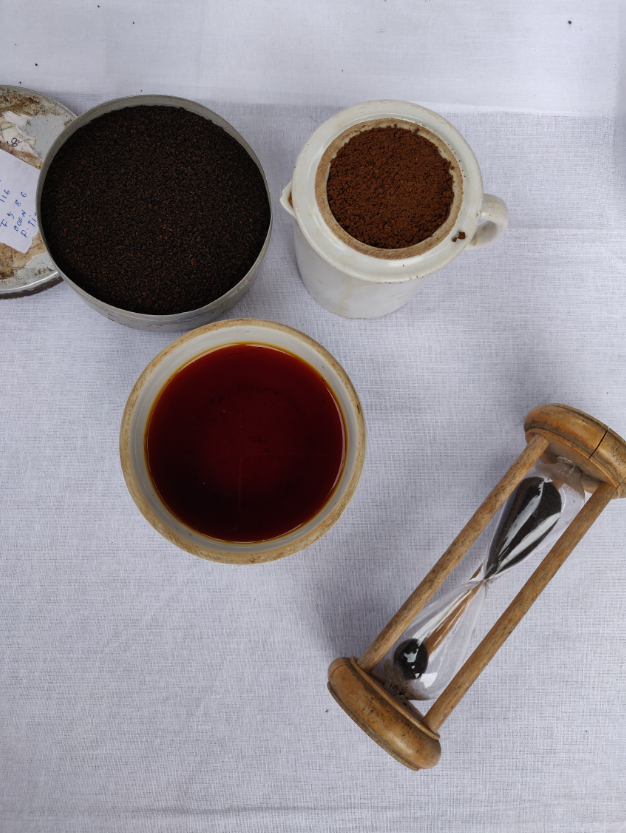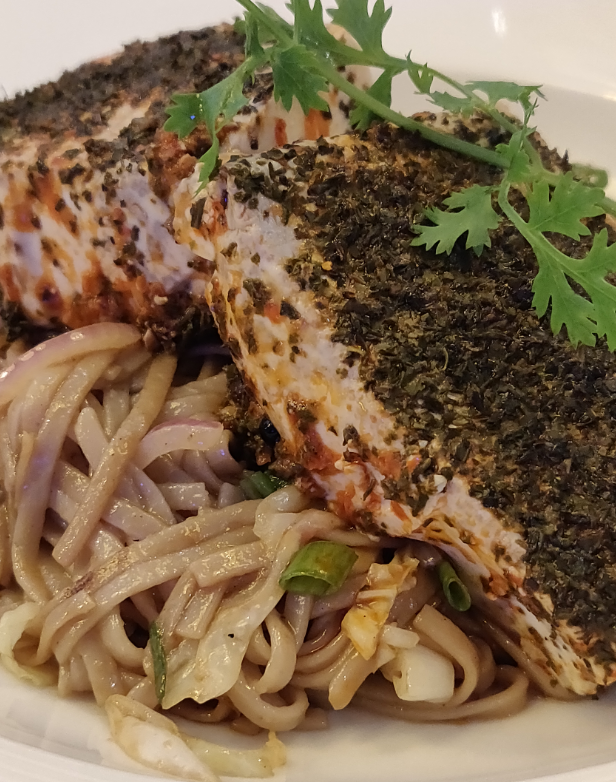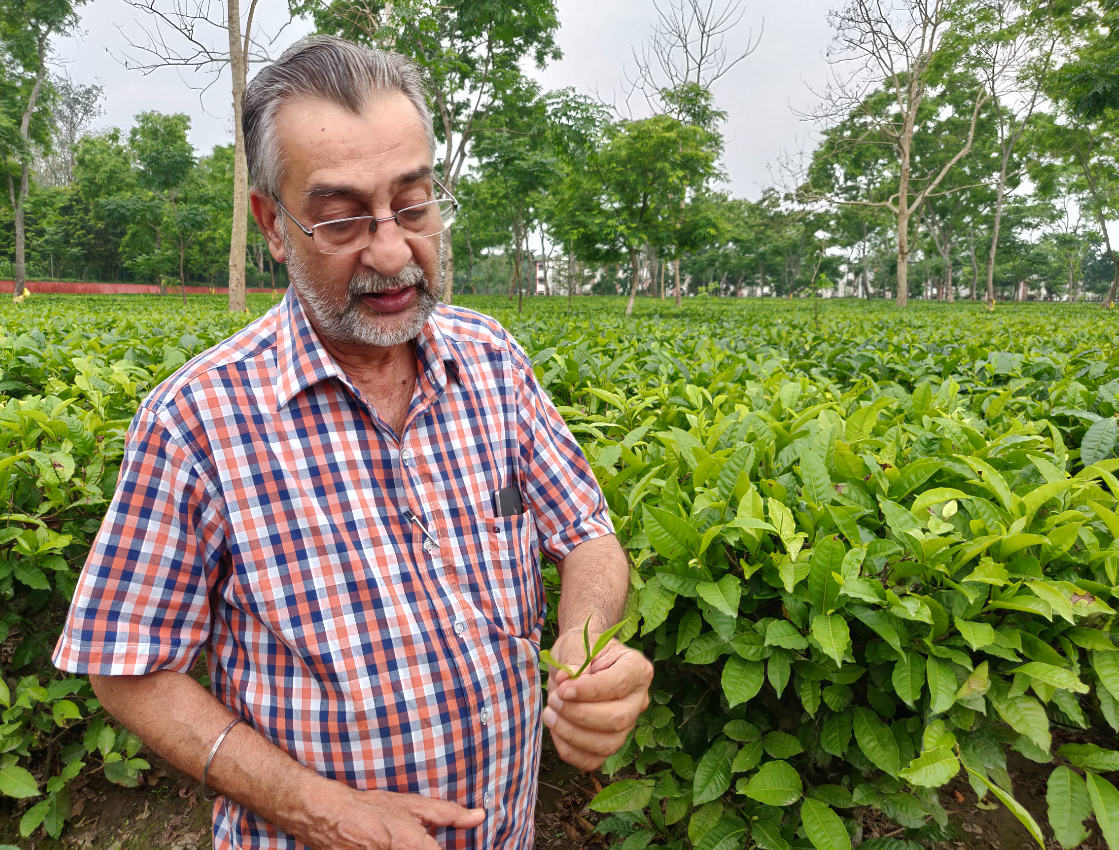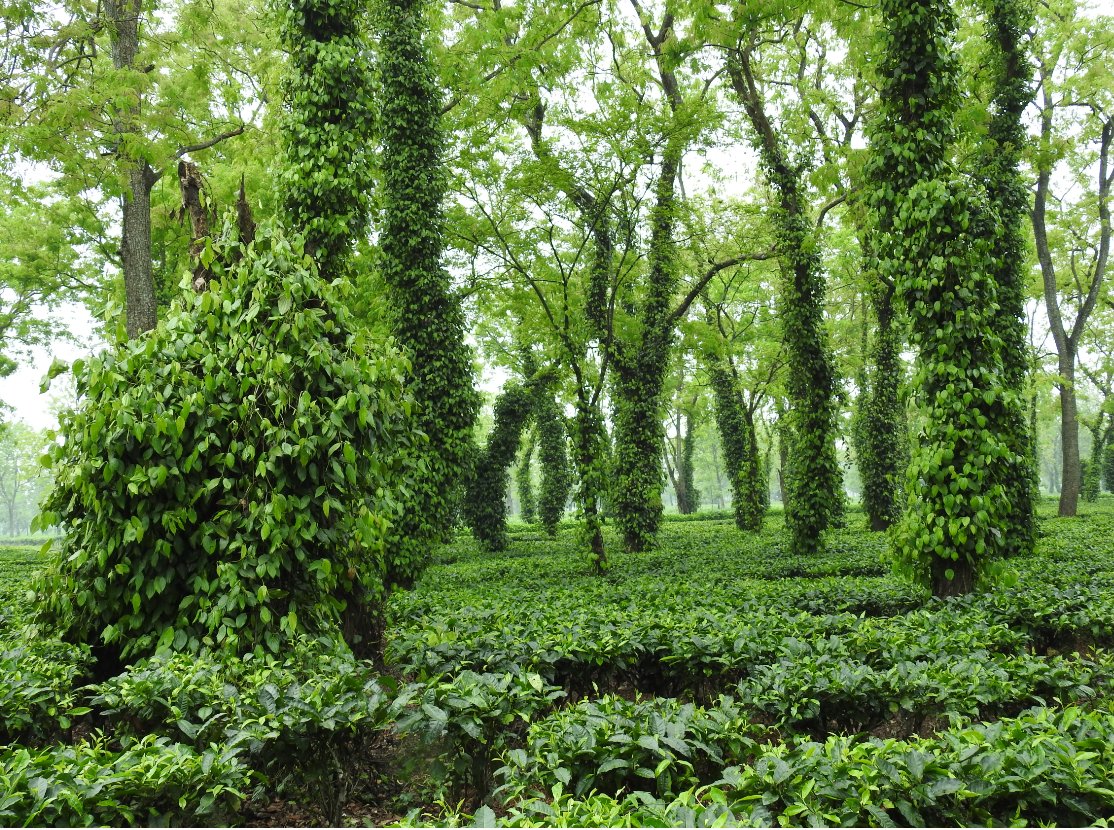A unique tea trial organized by Novotel Guwahati GS Road in association with Wild Mahseer by Balipara Foundation is the best way to immerse yourself inside India’s favourite cup that cheers.
Being from the South of India, tea gardens I have largely seen terraced tea gardens and that is why I felt that there is something unique about the tea gardens in Assam. The tea plantations here are all in one level and stretch as far as your eye can see. The entire landscape is like a giant green carpet that covers hectares of land stretching endlessly into the horizon.
Tea Tales
I start my tea journey at Amalgamated Plantations’ Misa Polo Club in the Kellyden Tea Estate that was built as a social space for the tea planters. The sprawling club has an 18 hole golf course and dates back to 1888 and has three tea gardens and two packaging units. Rajsekhar Dutta, Senior Manager, Amalgamated Plantations Private Limited who looks after operations of tea estate says, “tea is a 160 year old industry and this industry was started by the British. The tea shrub is actually a tree as it has the capacity to grow into a large tree but we keep it at a convenient height as we prune it every year. What pruning also does is that the plant develops more branches which means more plucking points and more harvest.” There are tall trees planted amidst the plantation which serve as shade trees that filter the sunlight. Tea as a crop needs the right amount of humidity, sunlight and rainfall all of which needs to be carefully regulated. This is why the plantations have drains as there should not be a situation of water stagnation near the roots of the tea. Incidentally the workers pluck leaves once in every seven days ensuring that the top two leaves and the bud leaf in between are only harvested. All the tea gardens are divided into grids that ensure that the plucking schedule follows a specific cycle.

Tea Process
Post this, he next stop was at the Kellyden Tea Estate where I witnessed the tea processing cycle for CTC (Cut Tear Curl) Tea. Assam tea is known for its special brand of black tea. The first and most important step in tea processing is withering where about 30 percent of the moisture in the plucked green leaves is removed by placing them on rollers and blowing hot air if required. This makes the leaves ready for curling (for CTC tea) and rolling (for Orthodox tea). After the leaves are withered the leaves are sent to a leaf sifter that removes sand, stone or any waste material. After this the leaves are passed through a leaf shredder where the leaves are chopped. The chopped leaves are put through a rolling process that ruptures the leaf cell-walls and the leaf maceration process happens. When oxygen comes in contact with the ruptured cells, the chemicals mix with each other to give the tea its characteristic flavour and start the oxidation process. After this the leaves pass through a sifter that segregates the tea by size. Then the tea leaves are dried in a way that the moisture level comes down to about 3% and a sifter does the gradation. There are four main kinds of tea including whole leaf, broken, fannings and dust and the sorted teas are packaged for storage and shipment.

Tasting Matters
Considering the extensive variants of tea, a tasting session is the best way to come up close with understanding all things related to arguably what is India’s favourite beverage. I had a session at Wild Mahseer located with the Eastern Himalayan Botanic Ark a first of its kind nature inspired residence in Eastern Himalaya home several species of birds, butterflies, amphibians, snakes, lizards and insects. Located in the midst of lush green tea fields this is where you can see the full growing cycle, tea manufacture, marketing and consumption through a panel of tea experts who have extensive knowledge of all things tea. There is an in-house nursery which has tea plant cuttings that are planted in the field. As part of the tour that takes you through the tea gardens there is also a tasting session where Anup Mehra, Estate Manager explains, “fermenting gives body and colour to the tea and as green tea is not fermented so no aroma or colour. We add 100 ml of water and five grams if tea and leave it to brew for five minutes and pour it out for tasting. The aroma, liquor and taste is better in orthodox teas as compared to CTC and also tea is best had without milk.” The tea tasting session has three grades each of orthodox and CTC teas and the process is to slurp a sip, allow it to coat your taste palate and then spit it out.

Reinterpreting Tea
Back in Novotel Guwahati after a packed couple of days of all things tea, there was more in store with a foot reflexology session aptly called ‘walk on the air’. This session interestingly uses handpicked green tea leaves mixed with honey and apple vinegar which acts like an excellent scrub. My therapist Plistina from Shillong started the session with a warm towel massage of my feet and then used circular strokes as well as her knuckles especially behind my foot to massage my feet with the mix. She also pressed the back of my feet with her thumbs that felt like an acupressure massage. The half hour session was completed using a hot towel to neatly wipe off the scrub leaving my feet completely rejuvenated. Following this was a tea themed dinner designed by Executive Chef Sujit Chakraborty based on his research on different flavours of tea. The meal itself was a three course affair with non-vegetarian tapas like Jasmine Green Tea Chicken Tender, Lemon tea Grilled Prawns and vegetarian tapas like Chamomile Hummus with Sesame Lavash and Earl Grey Polenta Bites with Mushroom Ragout. The Masala Chai flavoured thupka (or soup) in chicken or vegetarian options served were also an excellent interpretation of the local flavours of the region. The main course had options like Chai Spiced Chicken Supreme with Tartar Potatoes and Cajun Vegetables and Green Tea Crusted Baked Tofu with Soba Noodles and Lemon Tea Sauce each of which had a light flavour of tea that never overpowered the dish. Ending the meal on a sweet note we sampled the Orange Spiced Earl Grey Cake with Mix Berry Sorbet and all I could think was that tea is certainly a great leveller. And also I instantly connected with William Ewart Gladstone words as well, “if you are cold, tea will warm you; if you are too heated, it will cool you; if you are depressed, it will cheer you; if you are excited, it will calm you.” The entire tea experience was certainly all about understanding this very ethos and my tryst with Assam tea could certainly not have been better.
This story first appeared in Spice Route July 2019 issue here:

While green tea will usually deliver many health benefits, there are several precautions for those with current health conditions and allergies. Green tea is without a doubt better and viable alternative to drinking coffee.